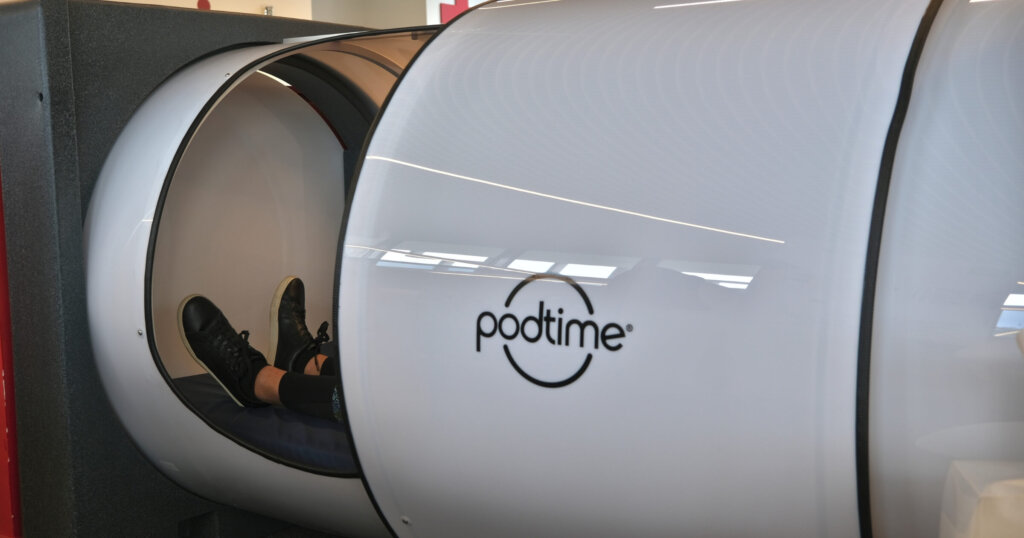If you’re feeling tired, foggy, or just not as sharp halfway through the day, you’re not alone. Whether you’re working on a job site, in an office, or juggling both, mental fatigue can hit hard. A quick 10-minute nap might be all you need to reset your energy and focus. In this article, we’ll look at the real science behind 10-minute nap benefits, how they help your brain and body, and why they’re a smart choice for anyone working in high-pressure or hands-on environments. We’ll also share tips on how to make these short naps part of your routine and how they can help you sleep better at night, too.
Quick look
- A 10-minute nap boosts alertness, focus, and mood more effectively than longer naps, without the grogginess.
- Brief naps help workers in construction, trades, and shift-based roles stay sharp, safe, and mentally refreshed.
- Studies show a 10-minute nap enhances memory, mood, and reaction time, even more than 20- or 30-minute naps.
- A quiet space, a timer, and good timing (1–3 p.m.) are all you need to make short naps a consistent energy reset.
What the research says about 10-minute naps
You don’t need a full hour of sleep to feel recharged. In fact, science shows that even ultra-short naps, as short as 6 to 10 minutes, can give your brain a quick boost.
Studies have found that a 10-minute nap was the most effective for improving alertness and performance when compared to longer naps of 20 or 30 minutes. Participants who napped for 10 minutes reported immediate benefits, including improved focus, faster reaction times, and a more positive mood. They also avoided that groggy feeling that sometimes follows longer naps.
Another study confirmed that short naps can benefit performance and help reverse drops in performance caused by sleepiness. People who took brief naps in the afternoon did better on memory and attention tests than those who didn’t nap at all.
What makes a 10-minute nap so helpful is that your body doesn’t enter the deeper stages of sleep like slow-wave or REM. That matters because waking up during deep sleep can leave you feeling sluggish and foggy, a state called sleep inertia. Since short naps keep you in lighter sleep, you wake up feeling more refreshed and alert.
For people in physically demanding or high-stress jobs, such as construction or shift work, a short nap can make a significant difference in staying safe and alert.
The benefits of a midday 10-minute nap
A 10-minute nap might not sound like much, but it can work wonders in the middle of a busy day. Here’s how a quick rest can help you reset and recharge without losing time or momentum.
Instant boost in alertness and focus
One of the biggest benefits of napping is the quick boost in energy and mental sharpness. Just a few minutes of rest can restore your attention span and help you stay focused for the rest of the day.
Short naps also help your brain process information faster and improve short-term memory. That means you’re more likely to catch small details, respond quickly to changes, and avoid mistakes, whether you’re behind the wheel, working with tools, or managing a crew.
Even just closing your eyes and stepping away for 10 minutes can create enough space for your brain to reset. You don’t need to fall into a deep sleep to feel the difference.
Improved mood and reduced fatigue
Feeling cranky or drained halfway through the day? A 10-minute nap can help reset more than just your focus. It can lift your mood and ease your stress.
Short naps have been shown to reduce feelings of frustration, tension, and anxiety. One study found that people who took brief naps were better at handling frustration and were less likely to overreact to stressful situations.
A quick nap also helps your brain manage emotions more effectively, making you feel calmer and more patient. This can help both on the job and at home. Even if you don’t fully fall asleep, just closing your eyes and resting your mind can give you a fresh sense of balance.
After waking, many people report feeling mentally clear and more in control. This is especially helpful during the mid-afternoon energy slump. If you often feel worn out by lunchtime or struggle to stay positive during long workdays, a short nap could be the small change that makes a big difference.
Sustainable performance without grogginess
Longer naps, like 30 to 60 minutes, often bring unwanted side effects. That’s because they give your body time to slip into deeper sleep stages. If you wake up during that phase, it can leave you feeling groggy, heavy, and even more tired than before.
A 10-minute nap avoids that problem. It keeps you in the lighter stages of sleep, which means you’re more likely to wake up feeling refreshed and ready to go. You get the mental boost without the mental fog.
This makes short naps a smart choice for construction workers, tradespeople, drivers, and office staff who can’t afford to lose focus or time. When every minute matters, a fast recharge is often better than a full shutdown.
Is a 10-minute nap better than 20 or 30-minute naps?
While any rest is better than none, the length of your nap can make a big difference in how you feel afterward. Here’s how 10, 20, and 30-minute naps compare.
A 10-minute nap is the sweet spot for a quick reset. It gives you just enough rest to improve focus, alertness, and mood without falling into deeper sleep. You wake up feeling refreshed, not groggy. It’s short enough to fit into a lunch break or a quiet moment between tasks.
A 20-minute nap goes a little deeper. This length has been linked to more noticeable boosts in memory and learning. However, because you’re starting to enter deeper sleep stages, you might feel a little groggy upon waking. Some people need a few extra minutes to fully bounce back after a nap this long.
A 30-minute nap often takes you into slow-wave sleep. This is the kind of deep rest your body uses to repair and restore. While this sounds helpful, waking up during this stage can leave you feeling sluggish and disoriented. That’s why 30-minute naps aren’t ideal when you need to get right back to work or stay sharp on the job.
In short, a 10-minute nap offers the best mix of quick recovery and mental clarity. For most people, especially those working in construction, trades, or other demanding fields, it’s the best choice for staying alert and productive without throwing off the rest of the day.
Is napping good for you? Real examples and workplace adoption
Short naps aren’t just for weekends. Big-name companies like Google and Nike have built nap pods and quiet zones into their offices so employees can take short rest breaks during the day. These companies recognize that even a quick 10-minute nap can improve focus, creativity, and overall performance.

Nap capsule installed in a library for students to rest. Photo courtesy of https://www.shutterstock.com/
A NASA study on pilots and astronauts found that short naps helped improve alertness by 54% and performance by 34%. That kind of boost can go a long way when you’re operating heavy equipment or making fast decisions on the job.
In the construction and skilled trades industries, more companies are starting to support scheduled rest breaks for safety and mental health. Fatigue on job sites is a real risk, and allowing workers a chance to reset during the day helps reduce accidents, boost productivity, and protect long-term well-being.
How to make a 10-minute nap work for you
Getting the most out of a short nap isn’t just about closing your eyes. A few small steps can help you turn a quick break into a powerful reset.
- Nap between 1 and 3 p.m. This is when most people naturally experience a drop in energy, thanks to their circadian rhythm. It’s the perfect window for a quick rest without affecting your nighttime sleep.
- Find a quiet, dark space. If you can’t find a silent room, try using an eye mask or earplugs to block out light and noise. Even a parked car or break room can work in a pinch.
- Set an alarm. To avoid sleeping too long, set a timer for about 12 minutes. That gives you a little time to settle in and still wake up before entering deep sleep.
- Be consistent. Like any habit, short naps work best when you do them regularly. Try adding one to your daily routine, just like lunch or coffee.
- Try the caffeine-nap trick. Drink a small cup of coffee right before your nap. Caffeine takes about 20 minutes to kick in, so by the time you wake up, the coffee starts to work. Many people say this combo helps them feel even more alert.
With just a little planning, a 10-minute nap can be one of the easiest ways to boost your day. Pair it with smart sleep habits, and you’ll feel the difference both on and off the job.
Bottom line
A 10-minute nap might seem small, but the benefits can be big. With just a little rest, you can boost your mood, sharpen your focus, and shake off that midday slump. It’s a simple habit that fits into almost any schedule and works especially well for people who need to stay sharp on the job.
Is napping good for you? Try it for a week and see how you feel. You may notice improved patience, quicker thinking, and increased energy to finish strong. Even better, encourage your coworkers to try it too. When everyone feels more rested, the whole team benefits.
Want more tips to help you sleep better and stay focused at work? Check out these helpful guides:
- Dietary changes to improve your sleep
- Six habits to avoid for better sleep and safer workdays
- 6 bedtime hacks every contractor needs for better sleep and more energy
- How sleep apnea impacts construction workers safety and what to do about it
Subscribe to our newsletter for more wellness tips, safety resources, and smart habits for life on and off the job.


